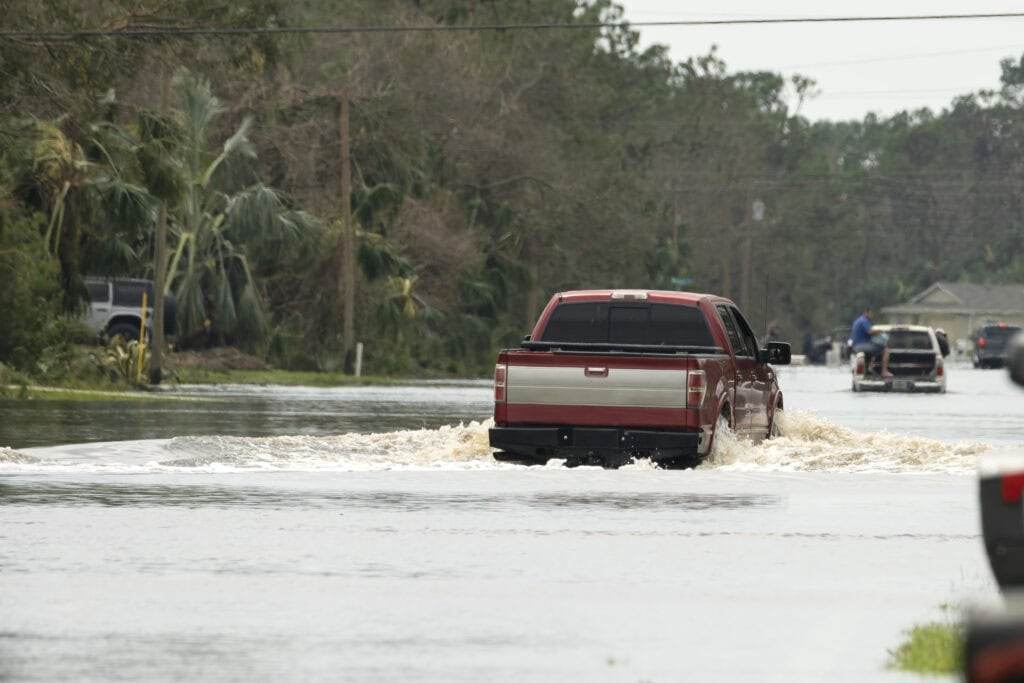If it feels like insurance costs are climbing faster than ever, you’re not imagining it. Across the country, extreme weather events are reshaping how insurance companies calculate risk, and those changes are landing directly in the form of higher rates for both home and auto insurance. Big storms, heavy rain, and historic flooding aren’t just rare disasters anymore. They’re happening more often, and the financial ripple effects are reaching everyone, even those living outside high-risk areas. Here’s what you need to know about climate change and auto insurance.
More Extreme Weather Means More Insurance Claims
Think back to Hurricane Katrina in 2005, a storm that highlighted how devastating a single extreme weather event could be. Since then, the frequency and intensity of disasters have climbed dramatically, making billion-dollar damage events far more common and putting increased pressure on the insurance industry.
Today, heavy rain, flash floods, wildfires, and massive hailstorms cause widespread flood damage nationwide. When disasters pile up like this, insurance companies have little choice but to adjust. More claims contribute to rising rates for everyone, not just those directly affected.
How Climate Change Affects Auto Insurance Specifically
While most people think of home insurance premiums when it comes to storm damage, your car is just as vulnerable.
If your vehicle gets caught in a flood, crushed by a falling tree, or pelted by softball-sized hail, you’ll be filing an auto insurance claim. But here’s the catch: those repeated payouts add up quickly for insurers, especially in big storms that impact wide regions.
The result?
- Raised premiums across entire markets
- Tighter underwriting requirements
- It’s getting harder to find coverage if you live in a high-risk area
Even if you personally never file a claim, living in a zip code prone to heavy rain or floods might still push your car insurance rates higher due to climate shifts.
What’s happening with home and auto insurers?
It’s not just auto policies seeing changes. Home insurers are also rethinking how they handle weather-related risks.
Some home insurers are withdrawing from the riskiest markets entirely, refusing to renew policies in wildfire- or flood-prone areas. Others are adding new surcharges or deductibles specifically tied to natural disasters.
Because home and auto policies are often bundled together for savings, meaning you buy both from the same company for a discount, rising home insurance premiums can also impact your overall insurance costs. If one part of the bundle gets more expensive due to climate risks, the total price you pay for both coverages often rises too. It’s a domino effect that touches just about every policyholder.
Tips to Prepare and Protect Your Vehicle
Good news—you can take practical steps right now to protect your vehicle and finances from extreme weather risks:
- Double-check your auto coverage: Make sure you have comprehensive coverage—it’s the part of your policy that covers weather-related damage like floods and hail.
- Watch where you park: During storms, parking in garages, on high ground, or away from trees can prevent major damage.
- Stay informed about flood risks: Even if you’re far from the coast, sudden heavy rain events can cause flash floods. Don’t assume you’re safe based on old weather patterns.
- Be cautious with used cars: Flooded vehicles are often resold. Always run a VIN check through trusted services (like Carfax) to avoid buying a flood-damaged car unknowingly.
The Bottom Line: Climate, Cars, and Rising Rates
The relationship between climate change and your auto insurance bill is growing stronger every year. More major storms mean more expensive damage, and more costly damage leads to—you guessed it—higher rates for everyone.
Whether you live in a high-risk hurricane zone or a city now seeing unexpected flooding, it’s important to stay informed and proactive about how extreme weather events could impact your coverage.
Review your comprehensive coverage, park smartly during storms, stay informed about flood risks, and be cautious when buying used vehicles. Taking these steps now can help you save money, avoid major headaches, and stay protected, no matter what the forecast brings.
Insure with Masters!
At Masters Insurance, we’re committed to helping you understand the factors influencing your insurance premiums and providing personalized solutions to meet your needs. Visit our website or contact us today for more information on our services and how we can help you protect what matters most!

